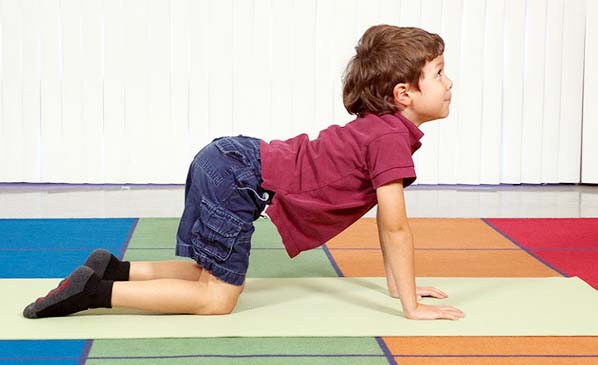
Life Desk :
A research study on the effect of physical exercise to reduce anxiety in children with Autism Spectrum Disorder (ASD) among underserved populations will soon begin by the Center for Autism & Neurodevelopmental Disorders.
This initiative is made possible through a grant from the Autism Intervention Research Network on Physical Health (AIR-P). Jean Gehricke, Ph.D., associate professor of pediatrics at UC Irvine and a licensed clinical psychologist with The Center for Autism & Neurodevelopmental Disorders, is the principal investigator of the study. The four-year study is receiving $103,125 for its initial year, with the potential overall total of $790,625. Gehricke expects to enroll participants by early fall.
‘The study is done to aid in the development of an evidence-based physical exercise intervention toolkit for the treatment of anxiety as well as other behaviors and improvement of physical health in children with ASD from underserved populations.’
“We are excited to be chosen as the only site nationwide to receive this AIR-P grant to study the impact of exercise on anxiety, which is very common and can lead to poor outcomes in children with autism,” Gehricke said. “The grant will allow us to collect valuable data that could significantly improve long-term physical and mental health, particularly in underserved communities.”
A growing international body of research is confirming the wide-ranging benefits of exercise in reducing stress and improving the long-term health of children and adults alike. This study will determine the potential benefits of exercise in underserved children with ASD.
“We often tell our families to encourage their children with autism to get out and exercise,” said Kelly McKinnon, M.A., BCBA, co-investigator on the project. “It”s exciting to be able to study its impact and share the results with our families.”
The physical exercise research program is being designed to incorporate comprehensive new guidelines for physical exercise in children developed by the Centers for Disease Control and Prevention. Researchers will measure impact based on several key factors, including compliance, anxiety and salivary cortisol levels measured before and after completion of the exercise and control group interventions. Cortisol is a frequently used biomarker for stress, Gehricke explained.
“Research is one of the core pillars of our mission,” said Catherine Brock, M.A., executive director of The Center for Autism & Neurodevelopmental Disorders.
“With this grant and Jean Gehricke”s pioneering research efforts, we will be better able to help parents and families overcome obstacles they face and assist children in reaching their optimal potential.”
Source: Newswise
A research study on the effect of physical exercise to reduce anxiety in children with Autism Spectrum Disorder (ASD) among underserved populations will soon begin by the Center for Autism & Neurodevelopmental Disorders.
This initiative is made possible through a grant from the Autism Intervention Research Network on Physical Health (AIR-P). Jean Gehricke, Ph.D., associate professor of pediatrics at UC Irvine and a licensed clinical psychologist with The Center for Autism & Neurodevelopmental Disorders, is the principal investigator of the study. The four-year study is receiving $103,125 for its initial year, with the potential overall total of $790,625. Gehricke expects to enroll participants by early fall.
‘The study is done to aid in the development of an evidence-based physical exercise intervention toolkit for the treatment of anxiety as well as other behaviors and improvement of physical health in children with ASD from underserved populations.’
“We are excited to be chosen as the only site nationwide to receive this AIR-P grant to study the impact of exercise on anxiety, which is very common and can lead to poor outcomes in children with autism,” Gehricke said. “The grant will allow us to collect valuable data that could significantly improve long-term physical and mental health, particularly in underserved communities.”
A growing international body of research is confirming the wide-ranging benefits of exercise in reducing stress and improving the long-term health of children and adults alike. This study will determine the potential benefits of exercise in underserved children with ASD.
“We often tell our families to encourage their children with autism to get out and exercise,” said Kelly McKinnon, M.A., BCBA, co-investigator on the project. “It”s exciting to be able to study its impact and share the results with our families.”
The physical exercise research program is being designed to incorporate comprehensive new guidelines for physical exercise in children developed by the Centers for Disease Control and Prevention. Researchers will measure impact based on several key factors, including compliance, anxiety and salivary cortisol levels measured before and after completion of the exercise and control group interventions. Cortisol is a frequently used biomarker for stress, Gehricke explained.
“Research is one of the core pillars of our mission,” said Catherine Brock, M.A., executive director of The Center for Autism & Neurodevelopmental Disorders.
“With this grant and Jean Gehricke”s pioneering research efforts, we will be better able to help parents and families overcome obstacles they face and assist children in reaching their optimal potential.”
Source: Newswise

